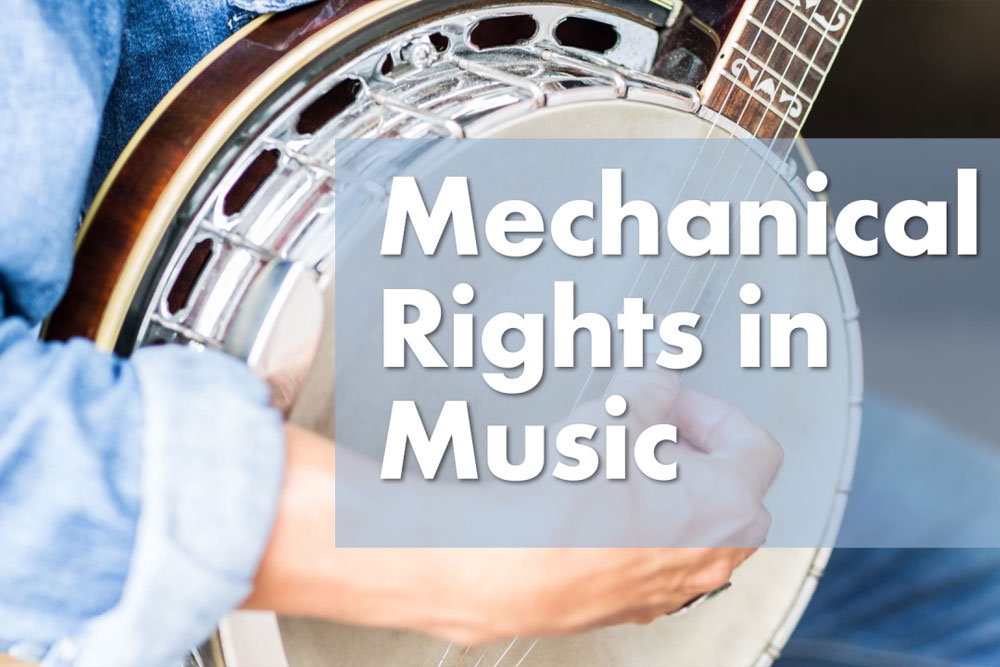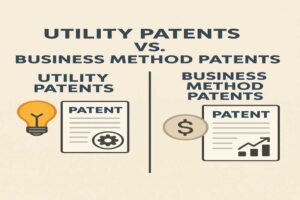Mechanical rights are a fundamental concept in the music industry, governing how songwriters, composers, and music publishers earn income from the reproduction of their compositions. Understanding mechanical rights is essential for anyone involved in music creation or distribution, as these rights are one of the primary ways artists and creators are compensated. Let’s explore what mechanical rights are, how they work, the organizations involved, and the key considerations for artists, labels, and publishers alike.
What Are Mechanical Rights?
Mechanical rights refer to the rights to reproduce and distribute a musical composition. They are one of several types of copyright in the music business and specifically cover the reproduction of a composition in physical or digital formats. This can include CDs, vinyl records, digital downloads, and streaming. When a song is reproduced or distributed in any of these formats, the holder of the mechanical rights—typically the songwriter or music publisher—is entitled to a royalty payment.
Mechanical rights are distinct from other forms of music rights, such as performance rights, which cover the public performance of a song, or synchronization rights, which cover the use of a composition in audiovisual media like movies or commercials. Each of these rights functions independently, although they often overlap in practice.
History of Mechanical Rights
The concept of mechanical rights dates back to the early 20th century when technological advancements made it possible to reproduce music through mechanical means, such as piano rolls for player pianos. With the rise of these technologies, it became necessary to establish a legal framework that would protect the interests of composers and songwriters.
In the United States, the introduction of the mechanical right was formalized in 1909 with the Copyright Act, which created the first “mechanical royalty” and set the groundwork for the licensing of mechanical rights in the modern music industry. This act stipulated that record labels and music producers must pay a mechanical royalty to songwriters and publishers each time a song is reproduced in a tangible form.
How Mechanical Royalties Work
In today’s music business, mechanical royalties are generated each time a composition is reproduced.
Here are some of the primary ways in which mechanical royalties are collected:
- Physical Sales: When a composition is reproduced on a physical medium, such as a vinyl record, CD, or cassette tape, the record label responsible for producing these copies must pay a mechanical royalty to the songwriter or publisher.
- Digital Downloads: Each time a song is downloaded from platforms like iTunes or Amazon, a mechanical royalty is generated. This digital mechanical royalty is similar to the physical mechanical royalty and is paid to the songwriter or publisher by the digital distributor.
- Streaming Services: When a song is streamed on platforms like Spotify, Apple Music, or Tidal, mechanical royalties are also generated, although the payment structure is more complex. Unlike a download or physical sale, a stream does not provide a permanent copy to the consumer, so the royalty rates tend to be lower. Still, these streaming mechanical royalties are essential for songwriters and publishers in the digital age.
Who Collects and Distributes Mechanical Royalties?
Mechanical royalties are collected by organizations known as mechanical rights organizations (MROs). In different countries, these organizations are responsible for licensing mechanical rights and distributing the royalties to rights holders. Some of the key organizations include:
- The Mechanical Licensing Collective (MLC) (U.S.): Established under the Music Modernization Act in 2018, the MLC is responsible for administering blanket mechanical licenses for digital streaming and download services in the United States. It plays a critical role in collecting and distributing mechanical royalties to rights holders for streaming and digital downloads.
- Harry Fox Agency (HFA) (U.S.): Historically, the HFA has been one of the primary organizations for collecting mechanical royalties in the United States, primarily for physical and download sales. Although the MLC now manages many digital royalties, the HFA continues to play a role in administering mechanical licenses for some uses.
- Mechanical-Copyright Protection Society (MCPS) (U.K.): In the U.K., MCPS is responsible for collecting and distributing mechanical royalties for a wide range of uses, including physical media, digital downloads, and streaming.
- Society of Composers, Authors, and Music Publishers of Canada (SOCAN) and CMRRA (Canada): In Canada, SOCAN and the Canadian Musical Reproduction Rights Agency (CMRRA) manage mechanical rights, with CMRRA handling most of the licensing for physical media and digital platforms.
- Societies in Other Territories: Nearly every country has a similar organization to administer mechanical royalties. In Europe, organizations such as SACEM (France), GEMA (Germany), and SGAE (Spain) handle the collection and distribution of mechanical royalties in their respective countries.
Types of Mechanical Licenses
In the music industry, mechanical rights can be licensed in several ways, depending on the type of use and distribution method.
The three most common types of mechanical licenses are:
- Statutory Mechanical License: In the United States, the statutory mechanical license allows any party to reproduce a song, provided they pay a fixed royalty rate set by the Copyright Royalty Board. This license is often used when an artist wishes to record a cover of a song that is already commercially available. Under the statutory license, the rate for physical copies and permanent downloads is currently 9.1 cents per song per copy (for songs five minutes or less).
- Negotiated Mechanical License: Instead of following the statutory rate, parties can negotiate a mechanical license directly with the rights holder. This is common when a label or distributor wants to secure a lower rate than the statutory rate or when international licensing deals are being made.
- Blanket Mechanical License: The MLC provides a blanket mechanical license that allows digital streaming platforms to reproduce all compositions in their catalog. This license simplifies the licensing process for streaming services, enabling them to pay mechanical royalties to songwriters and publishers without needing to negotiate individual licenses.
Mechanical Rights in the Age of Streaming
The shift from physical sales to digital distribution and streaming has dramatically changed how mechanical rights operate. Mechanical royalties from streaming are structured differently than those from physical and download sales due to the unique nature of streaming technology.
In streaming, royalties are split between performance royalties (for the public performance of the composition) and mechanical royalties (for the reproduction of the composition each time it is streamed). Performance royalties are paid to songwriters and publishers by performing rights organizations (PROs), while mechanical royalties are paid by the streaming platform to MROs, like the MLC, which then distributes the royalties to rights holders.
The royalty rate for streaming is based on factors such as the platform’s revenue, total number of streams, and country of the listener, which creates a fluctuating rate rather than a fixed rate. This variance can lead to significant differences in how much revenue songwriters and publishers earn from streaming versus traditional mechanical royalties from physical or download sales.
Challenges with Mechanical Rights and Royalties
Despite the systems in place to collect and distribute mechanical royalties, there are ongoing challenges and concerns within the industry:
- Inconsistent Data Management: With millions of songs available on streaming platforms, matching songs to the correct rights holders remains a significant challenge. The complexity of metadata and inconsistent record-keeping often lead to unpaid or misallocated royalties.
- Unclaimed Royalties: Due to data issues, rights holders often do not receive all the royalties they are owed. The MLC was created, in part, to address this issue by building a centralized database of rights information for digital streaming, but the problem persists for other types of mechanical royalties.
- Low Streaming Rates: The rate for streaming mechanical royalties is considerably lower than for physical or download sales, leading to complaints from songwriters and publishers who feel they are undercompensated for their work in the streaming age. This has sparked ongoing debates about fair compensation in the digital marketplace.
- Complex Licensing Landscape: The international nature of music distribution adds layers of complexity to mechanical licensing. Each country has its own MRO, and ensuring that royalties are paid accurately and promptly across borders can be challenging.
Best Practices for Songwriters and Publishers
For songwriters and publishers, understanding and managing mechanical rights is essential to maximizing income.
Here are some best practices:
- Register Compositions with PROs and MROs: Ensure that all songs are registered with relevant performing rights organizations and mechanical rights organizations. This step is crucial for collecting both performance and mechanical royalties.
- Keep Metadata Accurate: Proper metadata is essential for matching compositions to rights holders. Songwriters and publishers should ensure that all data associated with a song—including writer credits, publisher information, and ISRC/ISWC codes—is accurate and complete.
- Monitor Royalty Statements: Regularly reviewing royalty statements can help songwriters and publishers identify discrepancies or unpaid royalties. If an issue is found, it can often be addressed by contacting the relevant organization.
- Consider Working with a Publisher: A music publisher can manage the administrative aspects of mechanical licensing, helping ensure that all mechanical royalties are collected and distributed accurately. Publishers can also help negotiate direct deals and improve royalty collection.
Mechanical rights are a foundational part of the music business, ensuring that songwriters and composers are compensated for the reproduction of their works. Although the digital age has introduced complexities and challenges to mechanical licensing and royalties, the core principles remain the same. By understanding mechanical rights and working with the appropriate licensing organizations, songwriters, publishers, and artists can ensure they receive fair compensation for their creative efforts, even in an ever-evolving industry.







